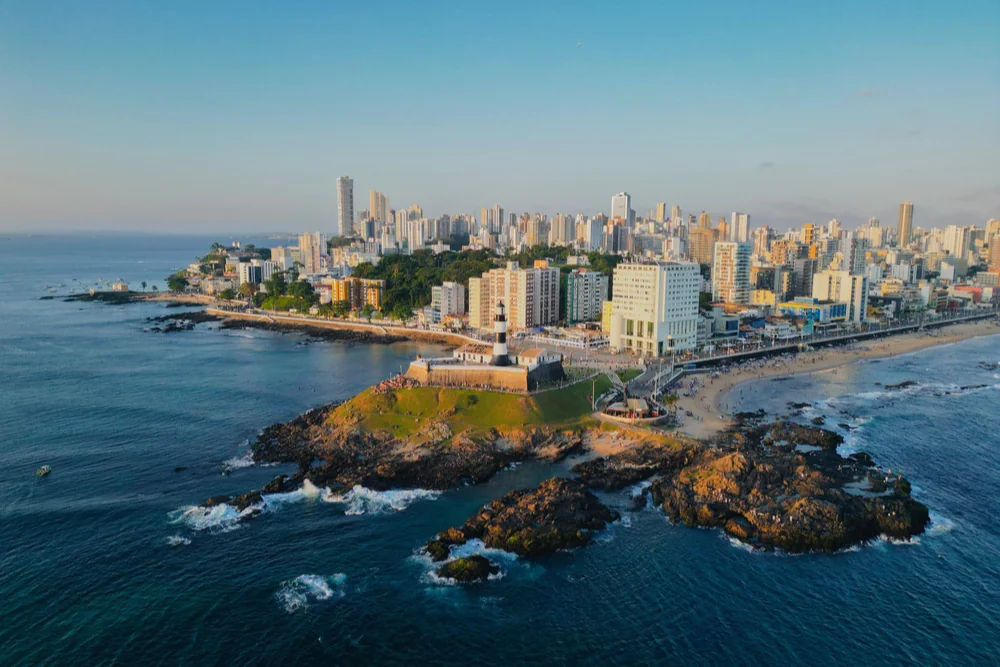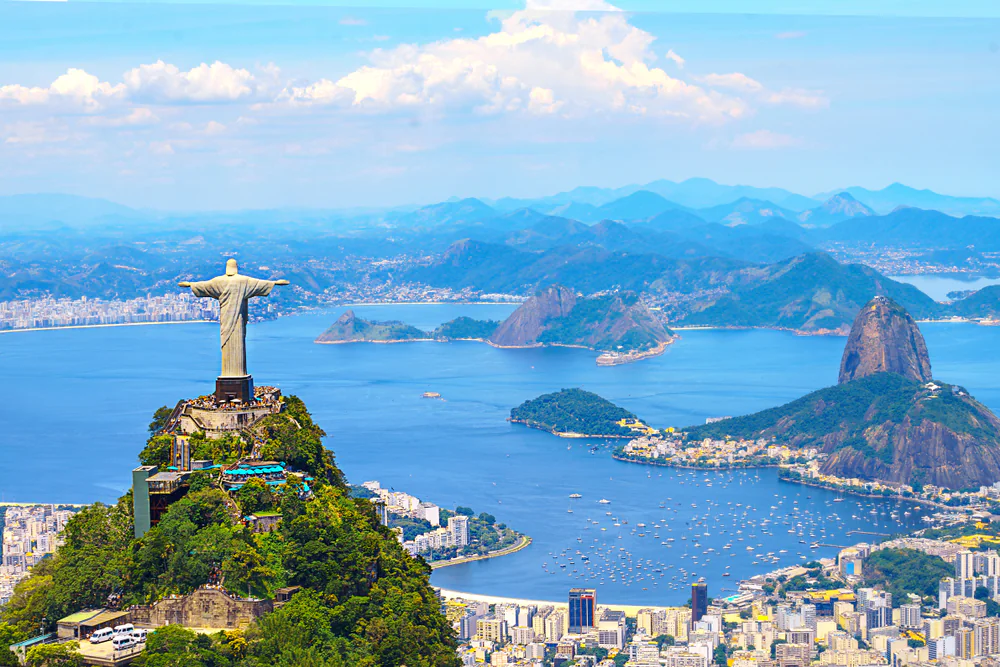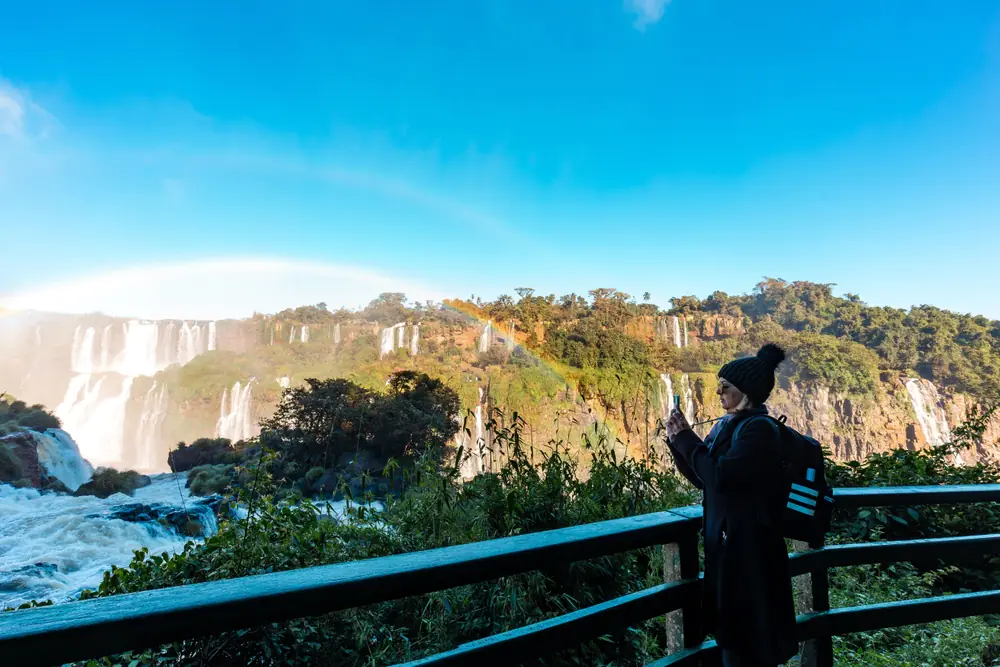
Salvador Travel Guide: Top Sights, Local Tips, and Experiences
Introduction:
Salvador, an exciting city in Brazil located on the Bahia state’s coast, is well-known for its historic buildings, bustling festivals, and rich Afro-Brazilian culture. With our Salvador Travel Guide, explore one of the oldest cities in Brazil, which boasts a rich past and a distinct fusion of indigenous, African, and Portuguese elements. Travelers may experience a wide variety of activities, from its breathtaking beaches to its vibrant carnival events.
How to Reach Salvador:
By Air:
- Deputado Luís Eduardo Magalhães International Airport (SSA): The main airport serving Salvador, with flights from major Brazilian cities and international destinations.
By Bus:
- Long-Distance Buses: Reliable bus services connect Salvador with other Brazilian cities, including Rio de Janeiro, São Paulo, and Brasília.
By Car:
- Driving: Accessible by car from nearby cities and regions, with well-maintained highways connecting Salvador to other parts of Brazil.
Best Time to Visit:
- December to March: Summer season with warm temperatures and vibrant festivals, including the famous Carnival.
- April to November: Cooler and less crowded, ideal for exploring the city and enjoying its beaches.
Top Destinations: Salvador Travel Guide
Pelourinho: A historic neighborhood with colonial-era buildings, colorful facades, and cobblestone streets. It’s a UNESCO World Heritage site known for its vibrant cultural scene.
- Why Visit: Rich history, colonial architecture, and cultural events.
Elevador Lacerda: An iconic elevator connecting the lower city (Cidade Baixa) with the upper city (Cidade Alta), offering panoramic views of the harbor.
- Why Visit: Stunning city views, historical significance.
São Francisco Church and Convent: A baroque church famous for its ornate gold-leaf interior and intricate tile work.
- Why Visit: Architectural beauty and historical significance.
Mercado Modelo: A bustling market offering local crafts, souvenirs, and traditional Bahian cuisine. It’s a great place to experience local culture.
- Why Visit: Souvenirs, local crafts, and vibrant atmosphere.
Farol da Barra: A historic lighthouse and landmark located at the entrance of the Bay of All Saints, providing scenic views and a museum.
- Why Visit: Scenic views, historical landmark.
Bahia Museum (Museu da Bahia): A museum showcasing the art, culture, and history of Bahia, including traditional costumes and artifacts.
- Why Visit: Insight into Bahian culture and history.
Dique do Tororó: A picturesque lake surrounded by sculptures of the orixás (African deities), popular for leisurely walks and picnics.
- Why Visit: Sculptures, relaxing atmosphere.
Itapuã Beach: A beautiful beach known for its golden sand, clear waters, and lively atmosphere. Ideal for sunbathing and swimming.
- Why Visit: Stunning beach, vibrant atmosphere.
Bonfim Church: A significant religious site with colorful ribbons tied by visitors, believed to carry wishes and prayers to the divine.
- Why Visit: Religious significance and local tradition.
Ilha de Itaparica: A nearby island offering beautiful beaches, historic sites, and a relaxing escape from the city.
- Why Visit: Beautiful beaches and island getaway.
Where to Stay:
Luxury:
- Fasano Salvador: Offers luxurious accommodations with stunning ocean views and high-end amenities.
- Pestana Convento do Carmo: A historic hotel located in a converted convent, blending luxury with history.
Mid-Range:
- Hotel Vila Galé Salvador: Located near the beach, offering comfortable accommodations and amenities.
- Mercure Salvador Pituba: A well-rated hotel with convenient access to local attractions and dining options.
Budget:
- Hostel Galeria 13: A budget-friendly option with a relaxed atmosphere and central location.
- Hotel Pousada da Mangueira: Affordable accommodations with a welcoming environment and convenient location.
Local Cuisine:
Acarajé: A popular street food made from black-eyed pea dough, deep-fried and filled with shrimp, vatapá (a spicy paste), and other fillings.
- Where to Try: Street vendors and local eateries.
Moqueca: A traditional fish stew made with coconut milk, palm oil, tomatoes, and peppers, often served with rice.
- Where to Try: Local restaurants and seafood spots.
Caruru: A dish made with okra, shrimp, and ground peanuts, commonly enjoyed with rice and other side dishes.
- Where to Try: Bahian restaurants and food stalls.
Bobó de Camarão: A creamy shrimp stew made with manioc (cassava), coconut milk, and spices.
- Where to Try: Local dining establishments and eateries.
Feijoada: A hearty black bean stew with various meats, traditionally served with rice, collard greens, and orange slices.
- Where to Try: Traditional Brazilian restaurants.
Shopping in Salvador:
Mercado Modelo: A lively market offering a wide range of local crafts, souvenirs, and traditional foods. Ideal for unique gifts and cultural items.
- What to Buy: Handcrafted jewelry, local art, Bahian snacks.
Pelourinho Shops: Explore the shops in the historic Pelourinho district for handmade crafts, art, and traditional clothing.
- What to Buy: Local crafts, artwork, traditional clothing.
Shopping Barra: A modern shopping mall with a variety of stores, dining options, and entertainment.
- What to Buy: Clothing, electronics, souvenirs.
Travel Tips:
Safety: Stay aware of your surroundings and keep valuables secure. Stick to well-lit areas and use reputable transportation.
Health Precautions: Stay hydrated and use sunscreen. Be cautious with street food and drink bottled water.
Language: Portuguese is the official language. Learning basic phrases can enhance your experience and interactions.
Currency: The Brazilian Real (BRL) is the local currency. Use ATMs or exchange services for cash.
Local Customs: Respect local customs and traditions, especially during religious or cultural events.
Transportation: Use registered taxis or ride-sharing apps for safer transportation. Public buses and metro services are also available.
Weather: Salvador has a tropical climate. Dress in lightweight, breathable clothing and be prepared for occasional rain.


